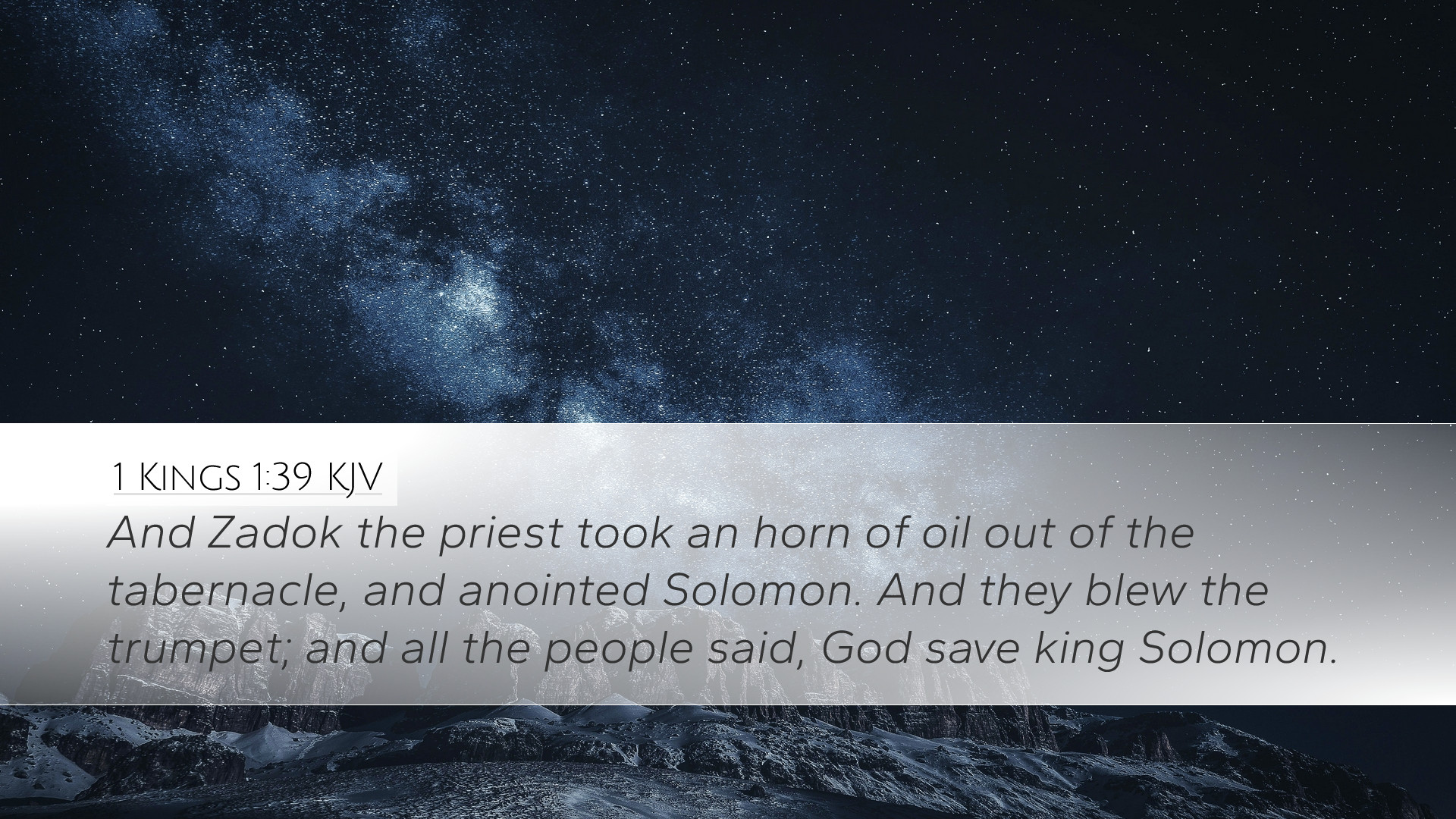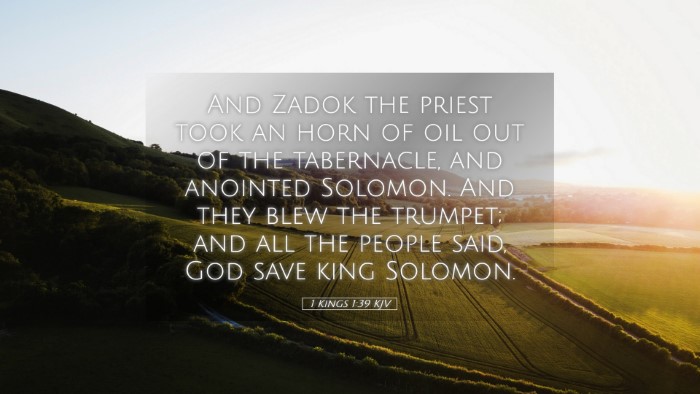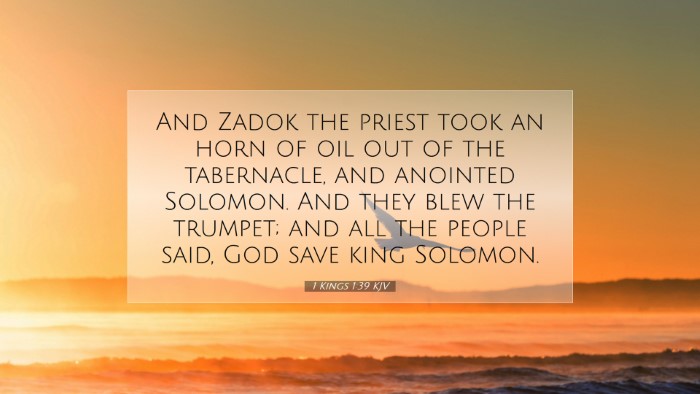Commentary on 1 Kings 1:39
Verse Context: 1 Kings 1:39 states, "And Zadok the priest took an horn of oil out of the tabernacle, and anointed Solomon. And they blew the trumpet; and all the people said, God save king Solomon."
Introduction
This verse marks a pivotal moment in the transition of the monarchy in ancient Israel, symbolizing God's choice and anointing of Solomon as king. The act of anointing is significant in biblical tradition, often associated with the empowerment of leaders to carry out God's will.
The Anointing: Symbolism and Significance
Zadok's Role: Zadok, a prominent priest, is noted for his loyalty to David and his pivotal role in Solomon's anointing. Matthew Henry emphasizes that Zadok’s act was significant not only politically but spiritually, as he represents the continuity of true worship and the rightful priesthood.
Horn of Oil: The horn used by Zadok reflects the biblical symbolism of strength and abundance. Albert Barnes notes that the anointing with oil signifies the endowment of the Holy Spirit and divine authority bestowed upon Solomon for kingship.
Connection to Jesus Christ: Adam Clarke draws parallels between Solomon's anointing and the anointing of Jesus Christ, noting that both figures are chosen leaders designated by God to fulfill His purposes. This makes the act deeply eschatological in its implications.
The Response of the People
The blowing of the trumpet and the people's proclamation, "God save king Solomon," signifies their acceptance and joy in Solomon’s anointing. This public affirmation is crucial in establishing legitimacy in the monarchy.
- Unity of the People: The communal celebration signifies a collective agreement on Solomon's rule, accentuating the importance of unity in the leadership of Israel (Matthew Henry).
- Divine Acknowledgment: The statement "God save king Solomon" reflects the people's recognition of divine intervention in the choice of their king, illustrating their reliance on God’s sovereignty (Albert Barnes).
- Contrast with Adonijah: The anointing presents a sharp contrast with Adonijah's earlier attempt to claim the throne. Adam Clarke points out that Zadok’s anointing symbolizes the rightful claim to the throne, establishing God’s choice over human ambition.
Theological Implications
The act of anointing draws attention to themes of leadership, divine selection, and the importance of exercising authority in accordance with God’s will. This moment encourages theological reflections on God's providence in guiding leadership.
- God's Sovereignty: The anointing reflects God's ultimate authority in leadership selection, challenging the notion that human effort or ambition controls outcomes (Matthew Henry).
- Leadership and Responsibility: Solomon’s anointing serves as a reminder to future leaders of the responsibilities that come with authority, encouraging them to seek God's wisdom in their governance (Albert Barnes).
- Continuity of God's Promise: The transition from David to Solomon elaborates on the continuity of God’s promise to David regarding his lineage and how it is fulfilled in Solomon’s reign (Adam Clarke).
Application for Pastors and Scholars
This verse offers crucial insights for pastors and theological scholars, particularly regarding the following:
- Understanding Leadership: The importance of aligning leadership with God's purpose, acknowledging that true authority is granted and sustained by divine appointment.
- Fostering Unity: The celebration of Solomon’s anointing highlights the need for communal support in leadership roles within the church or congregation.
- Encouraging Prayer for Leaders: The declaration of “God save king Solomon” can serve as a model for congregants to pray for their leaders, seeking divine wisdom and guidance.
- Exploring Biblical Anointing: Studying the significance of anointing in the Old Testament can deepen one’s understanding of New Testament applications, particularly concerning Jesus’ anointing.
Conclusion
The anointing of Solomon by Zadok encapsulates the divine orchestration underlying Israel's history. This moment conveys profound theological truths about God's sovereignty, the nature of true leadership, and the importance of community acknowledgment in God's plans. As we delve into this passage, we are encouraged to reflect on the contemporary implications of divine leadership within our lives and organizations.


